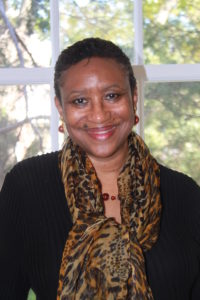In the Aftermath
 The following letter was written by Deborah McDowell, Alice Griffin Professor of English in the College and Graduate School of Arts & Sciences and Director of the Carter G. Woodson Center, in response to the alt-right demonstration events that transpired in Charlottesville this past weekend. It was originally posted on the website of the Carter G. Woodson Institute for African-American and African Studies at the University of Virginia.
The following letter was written by Deborah McDowell, Alice Griffin Professor of English in the College and Graduate School of Arts & Sciences and Director of the Carter G. Woodson Center, in response to the alt-right demonstration events that transpired in Charlottesville this past weekend. It was originally posted on the website of the Carter G. Woodson Institute for African-American and African Studies at the University of Virginia.
For further information and resources, please see:
The Illusion of Progress: Charlottesville’s Roots in White Supremancy
A Dark and Constant Struggle: 25 Years of Right-Wing Terrorism in the United States
To Students, Faculty, Alumni, and Friends of the Carter G. Woodson Institute:
Still reeling from and wrestling with the aftermath of the “Unite the Right” rally of this past weekend, I write as Director of the Carter G. Woodson Institute for African-American and African Studies, to join others in condemning the unspeakable terror and brutality unleashed on our community. Along with my colleagues, I extend my heartfelt condolences to the families and friends of those who will be long remembered for sacrificing their lives in defense against this latest iteration of bigotry and white supremacy. In the name of free speech and the right to assemble and protest, the rally’s organizers—both graduates of the University of Virginia—drew on time-worn tactics of terrorism and intimidation.
While we do not seek to inflame the tensions of this moment, it helps to be reminded of the words and work of the African American, Ida B. Wells-Barnett (1862-1931), who devoted her life to campaigning against the racist violence and terrorism of lynching. Writing in Southern Horrors: Lynch Law in All its Phases (1892), she makes two instructive points, which may serve to guide us in the days ahead: 1) “the people must know before they can act” and 2) “the way to right wrongs is to turn the light of truth upon them.” As an investigative journalist, Wells-Barnett was advocating in these passages for the role and power of the press as “educator,” but also for the importance of an informed citizenry. Armed with knowledge of Charlottesville and its history, we need not resort to the simplistic question posed by journalists, politicians, and pundits alike over the last 48 hours–“How did we get here?” Rather, we must ask, “What next?” Answering the latter question often requires that we “know” before “we act.” On behalf of my colleagues, I wish to assert the fact that we are a unit of African American and African Studies within an academic institution, believing in the transformative power and value of knowledge. As we have done time and time again in the face of national and local crises, we reaffirm the moral and intellectual value of our commitment to diversity, tolerance, civility, and justice, both at the University of Virginia and beyond.
In the spirit of Ida B. Wells-Barnett, we append to this statement a series of links to suggested resources for further study and future action, beginning with “The Illusion of Progress: Charlottesville’s Roots in White Supremacy.” In preparation throughout the summer of 2017, we share this document, still in progress, which was produced by the “Citizen Justice Initiative” of the Carter G. Woodson Institute. Sponsored by the Strategic Investment Fund of the University of Virginia, it represents the research conducted by a team of student interns from Charlottesville-area high schools and undergraduates from the University of Virginia, along with the director and managing editor of the project. Their work establishes that the legacies of slavery, segregation, and white supremacy in our community are yet to be conquered, despite signs of incremental progress. In the days and weeks ahead, we must do our part, individually and collectively, to battle those forces that bid to set us further back, working in solidarity with groups and coalitions on initiatives already underway. Following this document are links to other resources pertinent to the work that lies ahead.
Yours in struggle,
Deborah E. McDowell
for the Carter G. Woodson Institute,
College and Graduate Schools of Arts and Sciences
University of Virginia
- Guastavino Tile at the University of Virginia
- Abraham Lincoln on Character, Leadership and Education
- Silence is Golden: Celebrating the History of Silent Films
- UVA Club of Atlanta: Women's ACC Basketball Tournament - UVA Fan Events
- UVA Northern Virginia Programs Fair
- UVA Club of Los Angeles: Influential Communication
